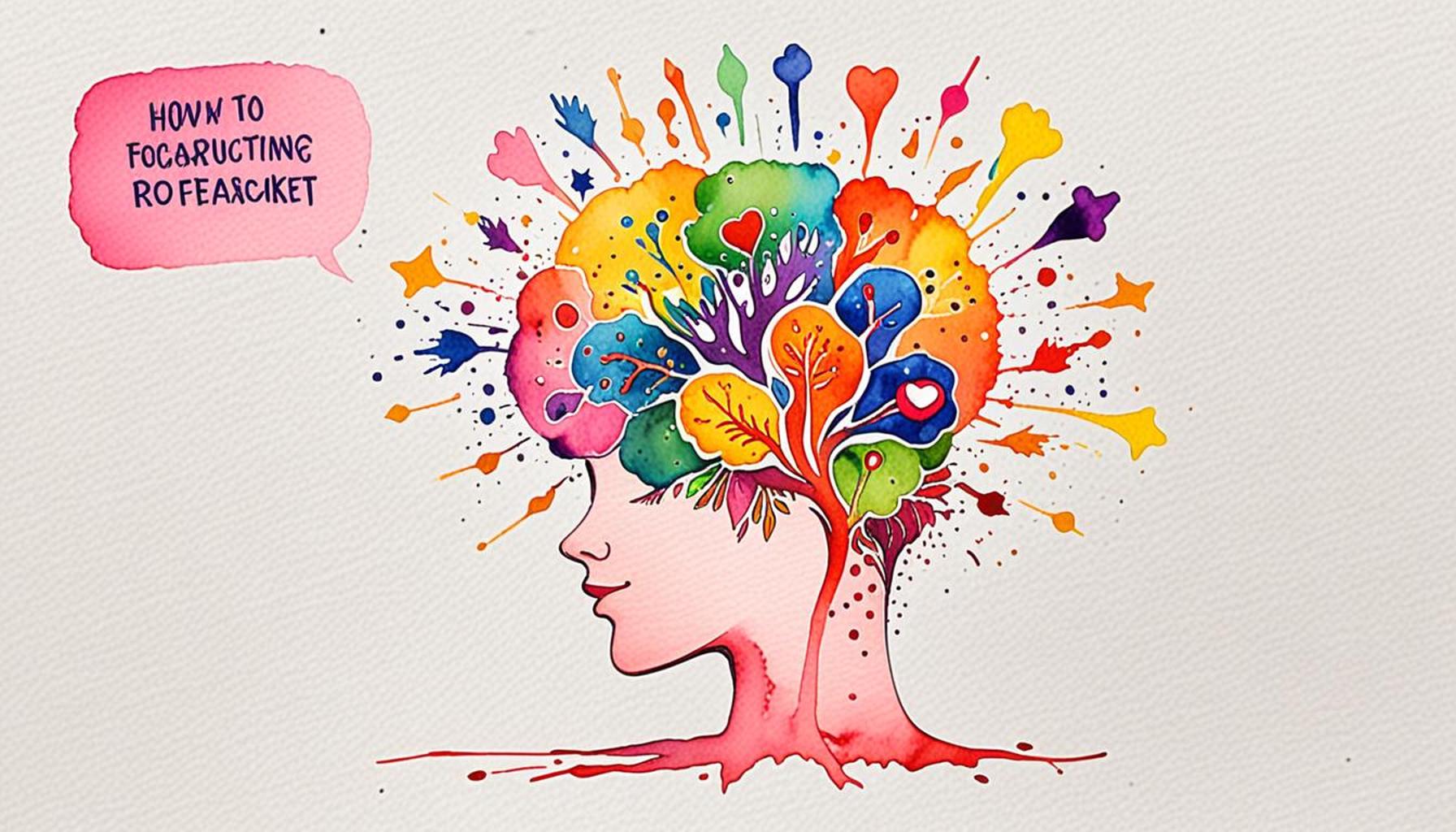How to Incorporate Constructive Feedback into Daily Practice to Develop a Growth Mindset

The Transformative Role of Constructive Feedback
In the fast-paced and ever-evolving landscape of today’s world, the significance of constructive feedback cannot be overstated. This invaluable resource offers a pathway for personal and professional evolution, playing a crucial role in developing a growth mindset—a core principle that encourages individuals to view challenges as opportunities for improvement rather than insurmountable obstacles.
The exchange of feedback can often feel overwhelming; however, understanding its key benefits can make this journey more palatable and rewarding. Let’s explore the various dimensions:
- Enhanced Performance: Continuous, constructive input from colleagues, mentors, or supervisors can unveil previously unnoticed blind spots. For instance, in a workplace setting in Nigeria, an employee might receive feedback on their presentation skills, helping them to refine their delivery and make a more lasting impression.
- Increased Resilience: Learning to navigate and embrace criticism is crucial for building emotional strength. In the challenging economic environment in Nigeria, resilience enables workers to adapt to changing job demands or unexpected company restructures, fostering a culture of perseverance in the face of adversity.
- Continuous Learning: When feedback is acknowledged and acted upon, it instills a mindset of lifelong learning. This proactive attitude is especially important in Nigeria’s dynamic marketplace, where new skills can often provide a competitive edge.
To harness the power of feedback, one must employ specific strategies designed to optimize its impact. Here are several actionable methods:
- Ask for Input: Actively seeking opinions from peers and mentors not only enriches one’s perspective but also fosters an environment of shared growth. For instance, during a team project, soliciting diverse opinions can lead to innovative solutions that might not have been considered by a single individual.
- Reflect on Feedback: It is essential to take the time to analyze the feedback received critically. This reflective practice allows individuals to discern valuable insights and determine how they can be effectively integrated into future tasks or projects.
- Practice Open Communication: Promoting conversations that prioritize transparency creates a culture of trust, where everyone feels comfortable sharing their thoughts. This aspect of communication is vital, especially in corporate Nigeria, where hierarchical structures can sometimes stifle open dialogue.
As we explore the profound impact of feedback further, it’s clear that transforming criticism into a pivotal part of one’s journey is not merely a concept; it is a necessary step toward achieving personal and professional excellence. Embracing feedback fosters not only individual growth but also a robust and innovative environment that propels entire organizations forward.
CHECK OUT: Click here to explore more

Turning Feedback into a Daily Habit
To truly develop a growth mindset, integrating constructive feedback into your daily practice is not merely beneficial—it is essential. The challenge often lies in transforming feedback from a sporadic event into a habitual practice. Individuals can begin this process by making intentional efforts to incorporate feedback into their routines.
First and foremost, it is vital to create an environment that welcomes feedback. This can be achieved by establishing regular check-ins with colleagues or mentors, making these sessions a platform for honest dialogue. For instance, in many Nigerian workplaces, setting aside time for weekly team meetings can serve as a perfect opportunity to openly exchange ideas and suggestions. This practice not only increases collaboration but also fosters an atmosphere where everyone feels empowered to share insights without fear of repercussions.
Secondly, one must embrace the discomfort that often accompanies feedback. Many people hesitate to accept criticism due to the emotional weight it carries. However, understanding that feedback is a powerful tool for growth can reframe one’s perspective. It is important to remember that constructive feedback is not an attack on one’s capabilities but rather a catalyst for improvement. By adopting this mindset, individuals can better harness the power of feedback to elevate their skill set.
Here are several strategies to seamlessly incorporate feedback into daily practices:
- Document Feedback Consistently: Keeping a log of feedback received across various tasks can help in recognizing patterns and common areas for improvement. For example, if multiple colleagues point out a need for clearer communication in reports, this insight can guide an individual to focus on refining their writing skills.
- Set Specific Goals: Post-feedback, setting actionable and measurable objectives is crucial. If feedback highlights the necessity for improvement in presentation skills, an individual could aim to practice public speaking weekly or even participate in workshops available in local communities.
- Engage in Peer Reviews: Pairing up with a colleague for reciprocal feedback sessions can be immensely beneficial. In a rapidly changing business environment, such as that of Nigeria, cultivating this habit within teams can foster innovation and elevate overall performance.
In conclusion, incorporating constructive feedback into daily practice requires effort and commitment but promises significant rewards. By systematically embedding feedback into the rhythm of daily activities, individuals not only work towards personal mastery but also contribute to a culture of continuous improvement, enhancing the collective growth of their organizations. As we delve deeper into this topic, remember that each piece of feedback serves as a stepping stone toward realizing one’s fullest potential.
| Category | Benefits |
|---|---|
| Learning from Feedback | Incorporating feedback encourages self-reflection and promotes continuous improvement. |
| Building Resilience | Constructive feedback fosters a resilient mindset, essential for overcoming challenges. |
| Collaboration | Engaging with peers enhances team dynamics and encourages open dialogue. |
| Goal Setting | Utilizing feedback assists in setting realistic goals and tracking personal growth. |
Fostering a growth mindset through constructive feedback requires both a systematic approach and an openness to change. One effective strategy is to create a feedback loop where feedback is given and received regularly. This loop not only normalizes the act of seeking and giving feedback but also emphasizes its significance in personal and professional development. For instance, leaders can implement feedback sessions within their teams to discuss performance openly. Such sessions provide a platform for team members to express their thoughts and receive valuable insights on their work.Additionally, seeking mentorship can further enhance the ability to absorb and act on feedback. Mentors often provide a fresh perspective and can guide individuals in navigating the sometimes-difficult terrain of constructive criticism. By leveraging the experiences of others, individuals can refine their skills and cultivate a mindset focused on perpetual growth. Engaging in reflective practices, such as journaling, can also be beneficial. Documenting experiences and the feedback received allows for deeper self-analysis and understanding. Over time, this practice can significantly shift an individual’s outlook, helping them to view obstacles as opportunities for development rather than setbacks. Embracing these methods collectively creates a robust framework for integrating constructive feedback into daily practice, ultimately nurturing a resilient growth mindset.
CHECK OUT: Click here to explore more
Leveraging Feedback for Continuous Improvement
Once individuals embrace the feedback process, the next step is to leverage it effectively for continuous improvement. Understanding how to use feedback not just for immediate tasks but also for long-term growth is pivotal in nurturing a growth mindset. By re-evaluating how to interpret and apply feedback, individuals can drive their personal evolution in both professional and personal spaces.
To begin with, it’s essential to recognize that not all feedback is created equal. Differentiating between constructive and unhelpful criticism can maximize the effectiveness of the feedback process. This requires a particular skill set—active listening and discernment. When receiving feedback, ask clarifying questions to ensure complete understanding. For example, if a supervisor points out areas needing improvement in a project, engaging them in dialogue about specific expectations can not only clear up any ambiguity but also demonstrate a commitment to professional growth.
Another approach involves embedding feedback into everyday tasks. This can manifest through self-assessment checkpoints where individuals reflect on their performance following received feedback. For instance, after submitting a report, take time to review the comments received and assess how they can be applied in future endeavors. This practice creates a feedback loop that enables continuous learning and adaptation over time.
Moreover, in contexts like Nigeria where team dynamics are paramount, embracing collective growth can significantly enhance the process of feedback incorporation. Here, fostering a feedback-rich culture within teams can invigorate individual performance as well as enhance group cohesion. Regularly inviting team members to share their insights about ongoing projects fosters a collaborative spirit and encourages open lines of communication. It can be as simple as adopting the practice of “Feedback Fridays,” where teams gather to discuss successes and areas for growth. This tradition not only ensures accountability but also nurtures a rich environment where learning is celebrated.
Additionally, individuals should consider staying adaptable to change and new information. The business landscape in Nigeria is often influenced by diverse factors, from technological advancements to shifting market dynamics. Therefore, maintaining an agile mindset is crucial. This means not only responding positively to feedback but also being willing to shift strategies or practices based on the insights gained. If customers provide feedback about a service inconsistency, adapting quickly to address these concerns reflects a commitment to improvement and responsiveness.
Finally, integrating feedback into self-development plans can elevate your growth trajectory. Seeking regular mentorship and guidance facilitates a structured pathway through which feedback can be interpreted and integrated. For example, a local entrepreneur can schedule monthly meetings with a mentor who can provide insight on developing business strategies based on market reception. Clearly defined milestones that align with the feedback received will guide progress and ensure accountability, ultimately driving toward not just personal but communal success.
In summary, actively leveraging feedback as a tool for continuous improvement is vital for developing a growth mindset. By refining how feedback is interpreted, creating collaborative environments, and staying adaptable, individuals set the foundation for enhanced performance and collective growth in both the workplace and personal life.
LEARN MORE: This related article may interest you
Embracing a Culture of Growth Through Feedback
Incorporating constructive feedback into daily practice is not merely a strategy; it is a vital component of cultivating a growth mindset that can transform both individual and organizational outcomes. By understanding the nuances of feedback, engaging in meaningful dialogue, and embedding reflective practices into one’s routine, individuals can unlock their potential and foster a resilient approach to challenges. Such an emphasis on feedback encourages continuous learning, enabling individuals to adapt and thrive in the fast-paced and ever-evolving landscape of Nigeria’s business environment.
Moreover, the value of creating a supportive and open team culture in which feedback is welcomed and discussed cannot be overstated. Initiatives such as “Feedback Fridays” or regular group meetings promote collaboration, magnifying the collective strengths of team members while alleviating the fear associated with criticism. This shift towards communal growth enriches interpersonal relationships and cultivates an atmosphere where innovation flourishes, ultimately benefiting professional endeavors and personal development.
Furthermore, as the Nigerian market faces constant changes, remaining agile and receptive to feedback is crucial. The ability to pivot strategies in response to constructive criticism not only signifies adaptability but also reflects a personnel commitment to excellence and service delivery. In pursuit of greater success, the integration of feedback into self-development plans can serve as an invaluable roadmap, guiding individuals through their growth journeys while enhancing accountability.
Ultimately, embracing a feedback-rich practice is an empowering step toward establishing not just personal excellence but also collective achievement. By fostering a culture that values and implements feedback, individuals in Nigeria can not only develop a growth mindset but also pave the way for innovative solutions and enduring success in their respective fields.


